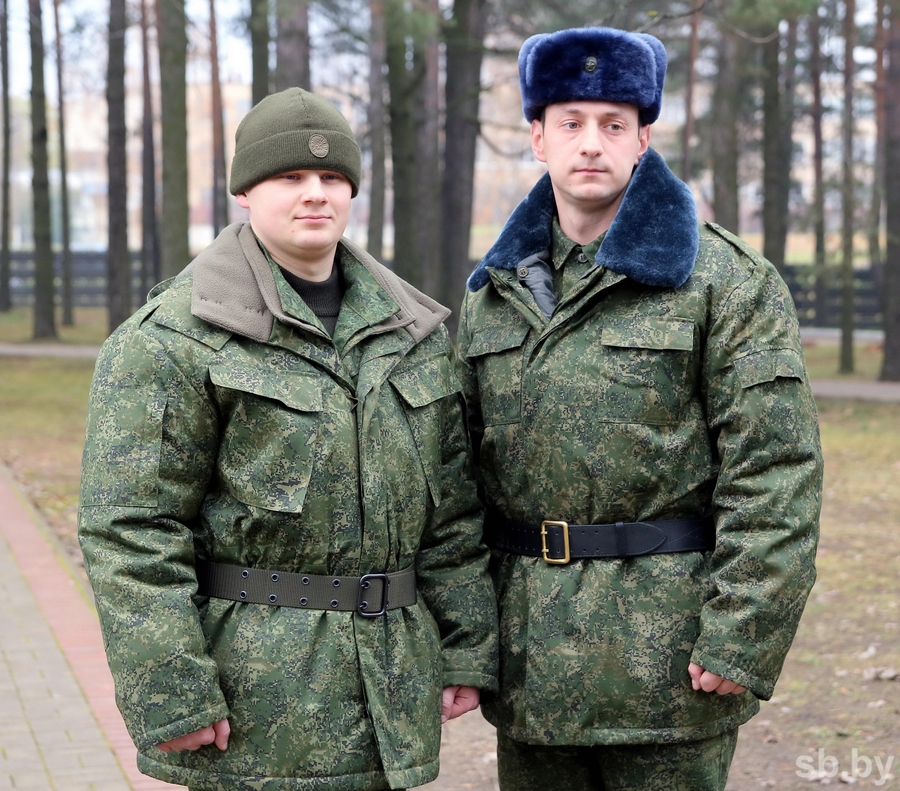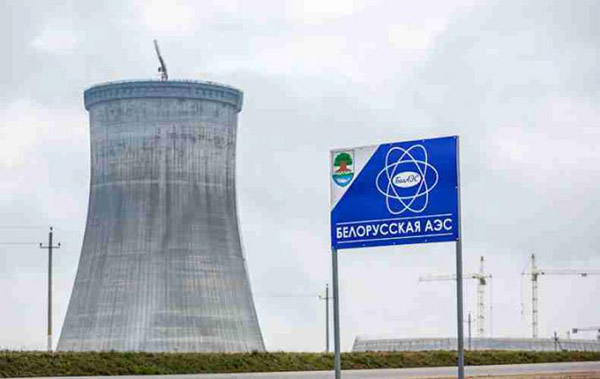Hazing investigation, local elections 2018, nuclear stress test – Belarus state press digest

Photo: sb.by
Belarusian experts Jaŭhien Prejhierman and Piotr Piatroŭski opine that a pause in Eurasian integration is necessary until the members resolve current controversies. The government announces the date and details of the 2018 local elections.
The Defence Ministry brings changes to the Piečy training centre after an outrageous hazing incident. The first Belarusian Nuclear Power Plant, Astraviec, successfully passes its stress test. Belarus improves its anti-corruption record. Officials and cultural figures discuss policies to raise the status of the Belarusian language.
This and more in the new edition of the Belarus state press digest.
Politics and foreign policy
The experts call for a pause in Eurasian integration. Narodnaja Hazieta, a newspaper, provides the opinions of Belarusian experts Jaŭhien Prejhierman and Piotr Piatroŭski on the state of the Russia-led Eurasian Economic Union (EEU). In just a few years, the EEU overcame several development stages that took the EU several decades: a customs union, a single economic space and an economic union. However, the result is that none of these platforms operate properly. Each contains numerous barriers, exceptions and limitations. Member states do not fully implement agreements. Deadlines for eliminating exemptions from the single market are continually postponed, including oil and gas prices, which are particularly sensitive for Belarus.
This simply contradicts the spirit of the alliance and violates the interests of the participating states. Instead of bringing member states together, it increases strategic uncertainty and vulnerability. Therefore, if the countries really want to build a strong mutually beneficial union, there must be a respite from further integration. It is for this reason that Belarus has proposed a moratorium on any new decisions in the EEU until the implementation of previously reached agreements.
Elections to local councils will be held on 18 February 2018. The state plans to allocate about $10.5m for election funding, but Belarusian President Alexander Lukashenka has urged the authorities to save rubles anywhere possible, writes Belarus Segodnia, a daily newspaper. The Chairman of the Central Commission for Elections and Republican Referendums, Lidzija Jarmošyna, announced the government has no obligation to invite international observers to elections to local councils.
Nevertheless, the President underlines the special role of observation and offers a possibility for short-term observation to all foreign diplomats accredited in the Republic of Belarus. Organisations that interact with international structures in the field of local self-government are allowed to invite experts and observers from partner organisations, too. Jarmošyna also said that since business plays an essential role in the life of our country, it should be well represented within local councils.
Military
The Defence Ministry has instituted major changes at the Piečy training centre after a brutal hazing incident allegedly led to the death of private Aliaksandr Koržyč. It ordered the replacement of the junior command staff and sent 20 sergeants from the 3rd and 307th schools to other military units.
Uladzimir Makaraŭ, the press secretary for the Defence Ministry’s Ideology Directorate, assured the public that the transfers will not spread hazing practices. Those who carried out and were involved in the hazing activities are already under investigation. After the death of the soldier, the Investigations Committee (equivalent to the FBI in the United States) opened 15 criminal cases against officers stationed at the Piečy training centre.

New (left) vs old (right) uniform. Photo: sb.byThe Belarusian army changes its uniform. The reform aims to make the uniform more lightweight and practical. Many servicemen will be able don new winter garb in a month. The traditional Soviet hat with ear-flaps known to many generations will be dismissed and replaced with a crocheted hat.
The jacket collar will turn from fur to fleece, which is cheaper and several times lighter. The costly black leather belts will be replaced with protective colour textile belts. In total, the new uniform is lighter by a third. Recent research by the Defence Ministry has shown that lighter and higher quality materials make soldiers more capable.
Public policy
The Belarusian Astraviec nuclear power plant (NPP) successfully passed its stress test. The Emergency Ministry’s Nuclear and Radiation Safety Department has published a national report on the results of a series of stress tests for Astraviec plant, reports Zviazda, a state-owned daily newspaper. The tests checked the resistance of the NPP to threatening phenomena that can hypothetically happen in Belarus: strong winds and squalls, tornadoes, large hail stones, dust storms, strong blizzards, ice, fog, drought, as well as combinations of these phenomena.
According to Department Head Volha Luhoŭskaja, the NPP at Astraviec is resistant to emergency situations similar to Fukushima. The NPP, which is constructed to the latest generation Russian ‘3+ design,” fully meets the highest international safety standards. Belarusian specialists have already submitted the report to the European Group for the Supervision of Nuclear Safety and the European Commission for international review.
Belarus improves its anti-corruption record. An interdepartmental conference at the Academy of Public Administration discussed anti-corruption law application and its further improvement in Belarus. Transparency International states that in the corruption perception index, Belarus rose from 107th place to 79th in 2016. A survey of Belarusian economists conducted among small and medium-sized businesses shows that the actual rating of the country is much higher and is at the level of Poland, Lithuania and Slovenia.

The Astraviec nuclear power plant. Photo: sb.by
One newspaper claimed that international experts regard Belarusian anti-corruption legislation as some of the most progressive and effective in the world. Prosecutor General Aliaksandr Kaniuk pointed out that the country is currently implementing policies that minimise corruption: limiting state interference in business, easing firefighting, sanitary, environmental and other requirements, abolishing administrative checks, simplifying procedures for obtaining certificates, approvals, and other permits.
Can the Belarusian language play a greater role in society? On 11 November, Belarus Segodnia held a roundtable on the Belarusian language, featuring both pro-governmental figures dealing with the language policy (MP Ihar Marzaliuk, ideologist Vadzim Hihin, Iryna Bulaŭkina from the Ministry of Education) and nationalists from the opposition (artist Mikola Kupava and historian Lieanid Lyč). The participants agreed that the vast majority of Belarusians want to live in an independent country, and no Belarusian nation and statehood is possible without the Belarusian language, history and cultural heritage.
The opposition speakers claimed that the role of the Belarusian language can be improved only through its wider use at the highest levels of education. Officials responded that forced Belarusianisation will lead to its rejection by the citizens, and therefore soft methods should be used in this process.
The state press digest is based on the review of state-controlled publications in Belarus. Freedom of the press in Belarus remains restricted and state media convey primarily the point of view of the Belarusian authorities. This review attempts to give the English-speaking audience a better understanding of how Belarusian state media shape public opinion in the country.






